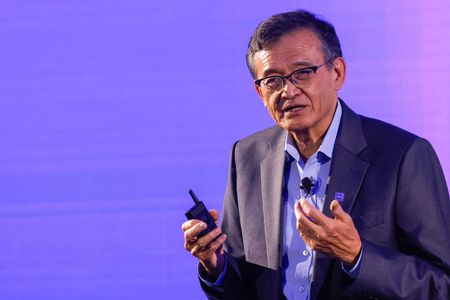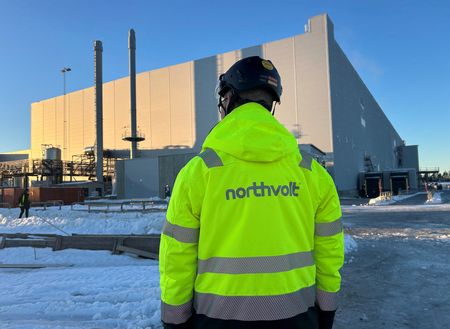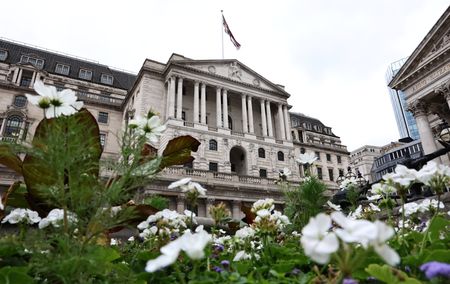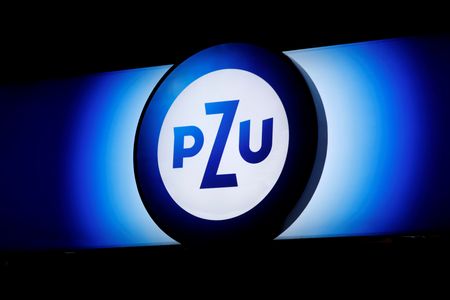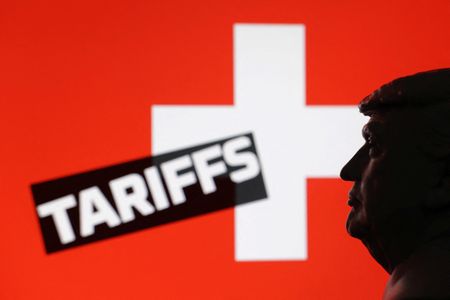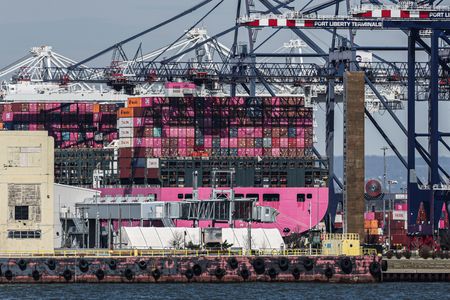By Aditya Soni
(Reuters) -U.S. President Donald Trump on Thursday demanded the immediate resignation of new Intel CEO Lip-Bu Tan, calling him “highly conflicted” due to his ties to Chinese firms and raising questions about plans to turn around the struggling American chip icon.
Reuters reported exclusively in April that Tan – himself or through venture funds he has founded or operates – invested at least $200 million in hundreds of Chinese advanced manufacturing and chip firms, some of which are linked to the Chinese military.
Trump’s comments came a day after Reuters was first to report that Republican Senator Tom Cotton had sent a letter to Intel’s board chair with questions about Tan’s ties to Chinese firms and a recent criminal case involving his former firm Cadence Design.
“There is no other solution to this problem,” Trump said in a post on his Truth Social platform, knocking shares of Intel down around 2% in early U.S. trading.
A change in leadership at Intel could pile pressure on the company, which is also a pillar of U.S. efforts to boost domestic chipmaking. Last year it secured $8 billion in subsidies, the largest outlay under the 2022 CHIPS and Science Act, to build new fabs in Ohio and other states.
Analysts debated whether Trump should be making calls on corporate leadership.
“It would be setting a very unfortunate precedent. You don’t want American presidents dictating who runs companies, but certainly his opinion has merit and weight,” said Phil Blancato, CEO of Ladenburg Thalmann Asset Management, which does not own Intel shares.
David Wagner, head of equity and portfolio manager at Intel shareholder Aptus Capital Advisors, responded that while “many investors likely believe that President Trump has his hand in too many cookie jars, it’s just another signal that he’s very serious about trying to bring business back to the U.S.”
Intel and Tan, who took over as CEO in March, did not immediately respond to Reuters requests for comment. An Intel spokesperson said in a statement on Wednesday that “Intel and Tan are deeply committed to the national security of the U.S. and the integrity of our role in the U.S. defense ecosystem.”
Reuters in April reported that Tan between March 2012 and December 2024 invested in Chinese firms, including in contractors and suppliers for the People’s Liberation Army, according to a review of Chinese corporate databases cross-referenced with U.S. and analyst lists of companies with connections to the Chinese military.
Reuters identified 20 investment funds and companies where his venture capital firm Walden is currently a joint owner along with Chinese government funds or state-owned enterprises, according to Chinese corporate records. The government funds are mostly from municipal governments of Chinese tech hubs like Hangzhou, Hefei, and Wuxi.
A source familiar with the matter had at the time told Reuters that Tan had divested his positions in entities in China, without providing further details. Chinese databases reviewed by Reuters at the time had listed many of his investments as current, and Reuters was at the time unable to establish the extent of his divestitures.
Tan, a Malaysian-born Chinese American business executive, was also the CEO of Cadence Design from 2008 through December 2021 during which the chip design software maker sold products to a Chinese military university believed to be involved in simulating nuclear explosions.
Cadence last month agreed to plead guilty and pay more than $140 million to resolve the U.S. charges over the sales, a deal Reuters first reported.
BUSINESS TURMOIL
“This all boils down to Lip Bu’s past involvement and investment in Chinese semiconductors, which is also what makes him so valuable as CEO,” said Anshel Sag, principal analyst at Moor Insights & Strategy.
Once the dominant force in chip-making, Intel has in recent years lost its manufacturing edge to Taiwanese rival TSMC. It also has virtually no presence in the booming market for artificial intelligence chips dominated by Nvidia.
Its shares are little changed so far in 2025, after dropping more than 60% last year. The company’s market value has fallen below $100 billion, with profit margins – once the envy of the industry – running at about half their historical highs.
To revive Intel’s fortunes, Tan has set a goal of slashing the chipmaker’s workforce by around 22% to 75,000 people by year-end. Intel has also warned of exiting chip manufacturing if it fails to secure a major customer, a potentially drastic move.
(Reporting by Aditya Soni in Bengaluru, additional reporting by Kritika Lamba, Akash Sriram and Johann M Cherian in Bengaluru and David Shepardson, Doina Chiacu and Brendan O’Brien in Washington; Editing by Anil D’Silva)

